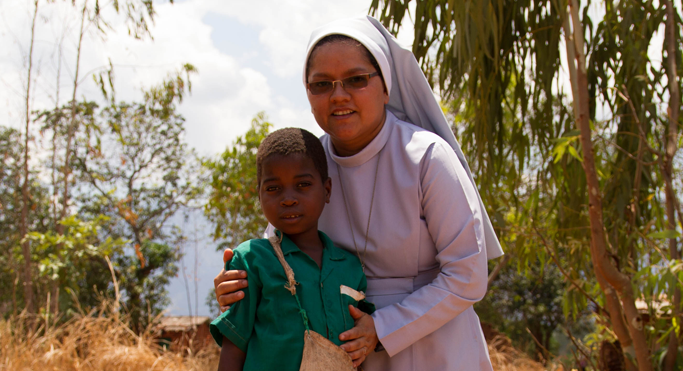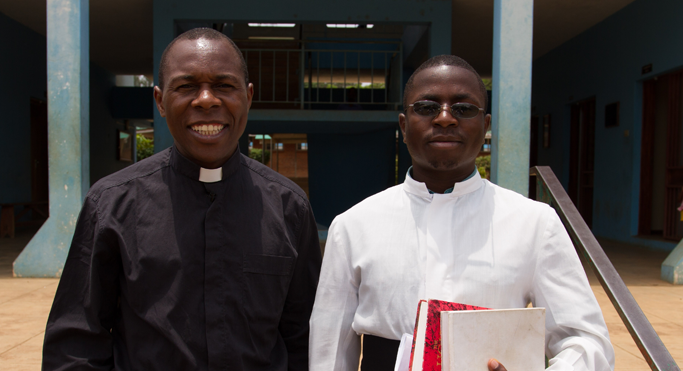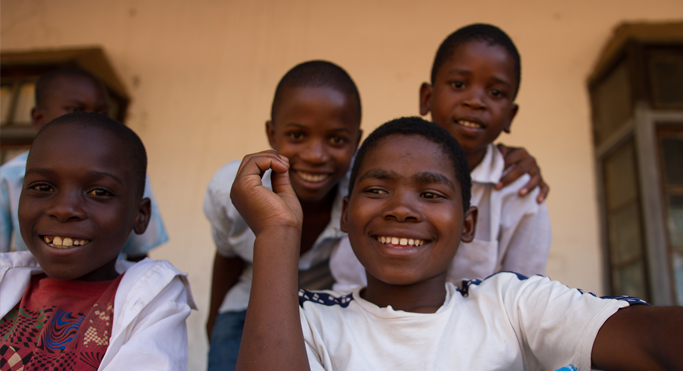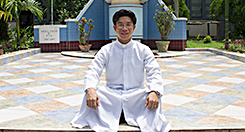Neve Shalom-Wahat al Salam is a village in the Holy Land where Israelis and Palestinians live together, learning the importance of recognising and seeing each other as human beings. Like the rest of Israel and Palestine, the inhabitants have been rocked by the current war. But this community is still working and praying together for peace.
Neve Shalom-Wahat al Salam, a bilingual name that literally means ‘Oasis of Peace’, was created in 1972 by a Dominican Priest named Bruno Hussar. The village is on the hills between Jerusalem and Tel Aviv and offers an example of coexistence between the peoples in the Holy Land. About 65 Israeli and Palestinian families live together in the village; their children go to school together and grow up side-by-side.
Learning to live in peace

The village is also home to several groundbreaking projects, including the School for Peace: a place where people not only study, take courses, and learn a methodology for encounter with others, but also share feelings, fears, and dreams; here they can meet each other on an equal, just footing.
The School was the first Jewish–Palestinian educational institution. Over the years, tens of thousands of Jews and Palestinians from Israel, and Palestinians from the Occupied Territories have taken part in its programmes.
Roi Silberberg, an Israeli Jewish citizen, is its current Director. Founded in 1979 as a centre for lifelong learning, Roi Silberberg explains the School’s purpose:
‘to promote more human relations, based on peace and justice. It was the first educational institution in Israel with a new approach, aimed at reconciliation and mutual recognition between Israelis and Palestinians’.
Shaken by the war
The strong foundations here haven’t stopped the inhabitants from being rocked by the recent conflict. Roi shares:
‘We are living in traumatic times of war. Everyone at our School for Peace is shocked and saddened by the incomprehensible atrocities committed by Hamas, and the lethal and vengeful response that Israel is preparing in Gaza. Moreover, the war serves as an excuse to deliberately commit further atrocities, as Palestinian citizens of Israel are massively silenced and persecuted, and army-backed violence by Jewish settlers is increasing in the West Bank. The vicious cycle of violence, terror and punishment lacerates the soul.’
Struggling – but determined
The pain of the new flare-up of violence shook the village. But the inspiring community is refusing to be overwhelmed. Roi says:
‘Under conditions of stress and uncertainty, a natural response might be to remain silent and wait passively for events to unfold. But talking means thinking, and in such catastrophic times it is important to think together. We see it as our responsibility to facilitate sincere, if difficult, reflection and dialogue in this disastrous time in history.
‘Only through engagement can we recognise each other’s pain and remain in human contact, both within ourselves and beyond national borders. In a climate of polarisation, dehumanisation and seeing the other as an enemy, our mission today is to educate to see the other as a human being.
‘Even if we are just a drop in a turbulent sea, we continue to fight for an egalitarian, just and democratic society, using the tools we have developed, counting on the hard-won trust of the School for Peace, with Jewish organisations and with Palestinians who have followed our paths of dialogue and training over the years.’
Rolling up our sleeves
In dark times, when ‘even peacemakers are looked upon with suspicion or hostility’, he notes, at the School for Peace both adults and children are working hard to resist the overwhelming tide of suffering:
‘Since the beginning of the war, we have organised online dialogue sessions for our already active bi-national groups. And we have responded to the request of our village residents to conduct dialogue sessions on the war and its impact on their daily lives, in traditionally “mixed” spaces nationwide, such as schools, hospitals, and workplaces where Jewish Israelis and Arab-Palestinians live side by side.’
In addition, he continues,
‘We launched our new dialogue programme between Palestinians and Israelis living in Europe and led several consultation sessions with various higher education and healthcare institutions’.
The School for Peace has spoken to the media about their model for peacefully coexisting and has also reached out to other human rights organisations in Israel that ‘call for respect for civilians on both sides’. Roi explains:
‘We are committed to building peace through educational activities, even in the darkest moments. There is no way to foresee the consequences of these events in our society, but we are working to assess the effects on Jewish-Palestinian relations, in order to define our present and future commitment, relying on the people, Israelis, Palestinians and those from other nations, who have followed our courses and had an experience in our village. These people – 40,000 in 40 years of activity – are called to be promoters and witnesses of peace and reconciliation’.
A desperate situation
On the agony experienced by the Palestinian population in Gaza, Roi Silberberg expresses the concern of all of Neve Shalom-Wahat al Salam. He shares:
‘Palestinian civilians have told us that they will not abandon their homes. And when the territory turns into a battlefield for the Israeli army’s offensive, even if only 10 per cent of the population of Gaza confirmed this choice, it would be a massacre of 200,000 civilians, women and children and the elderly. It would be a real massacre. We must say this and be aware of it.’
Against the odds, Neve Shalom-Wahat al Salam is a reminder that there is always hope, when people make it their mission to work for peace. We ask for your prayers for the people of the Holy Land. As Roi concludes:
‘In this tragic situation, we must strive to defuse hatred. Let us try to light our torches in the darkness around us and be a model of peace, equality, and justice’.






